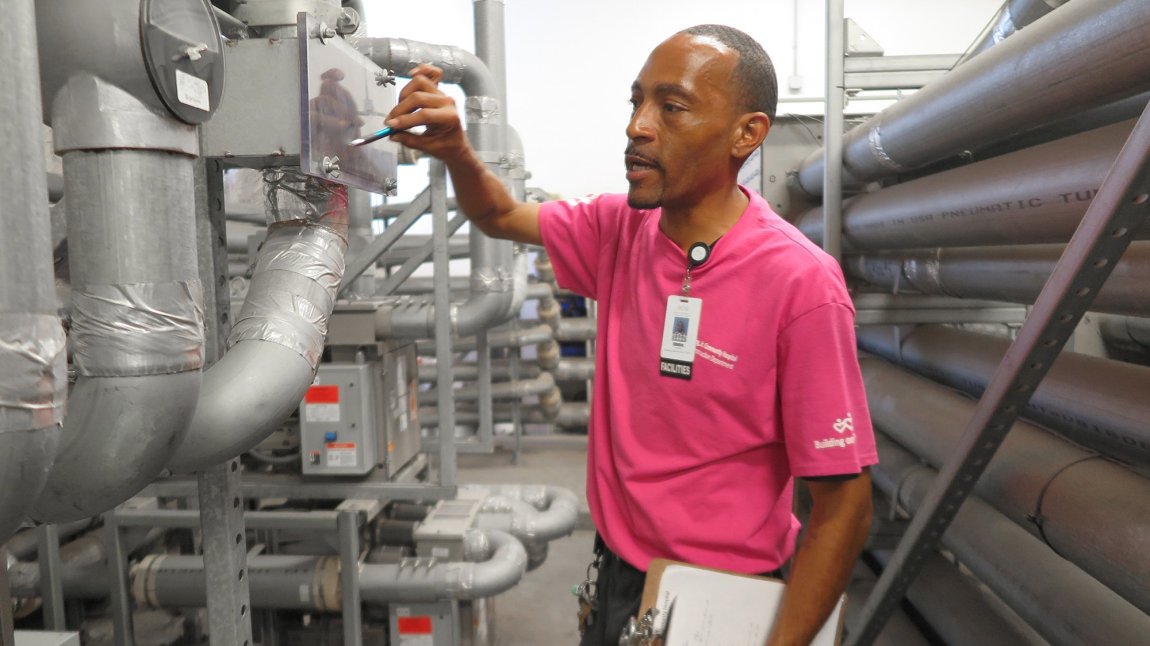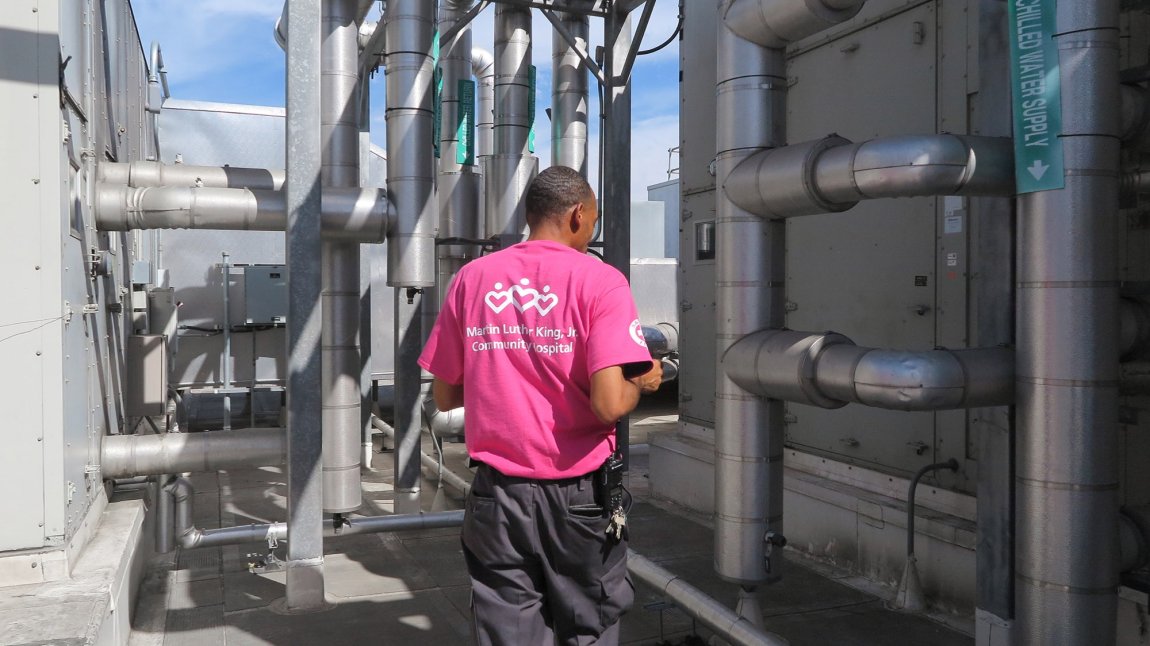In the basement boiler room of Martin Luther King, Jr. Community Hospital, Jimmie Brown runs his sneaker carefully along the bottom of a condenser, checking for water leaks. On the roof, he checks the temperature gauges on steam pipes. In the room that houses dozens of computer servers and the twisted bunches of cable that connect them, he sniffs for smoke. He is meticulous in everything he does.
As a facilities engineer charged with keeping the critical infrastructure of the Martin Luther King, Jr. Community Hospital running, it’s Jimmie’s job to be meticulous.
It’s also an act of personal healing.

